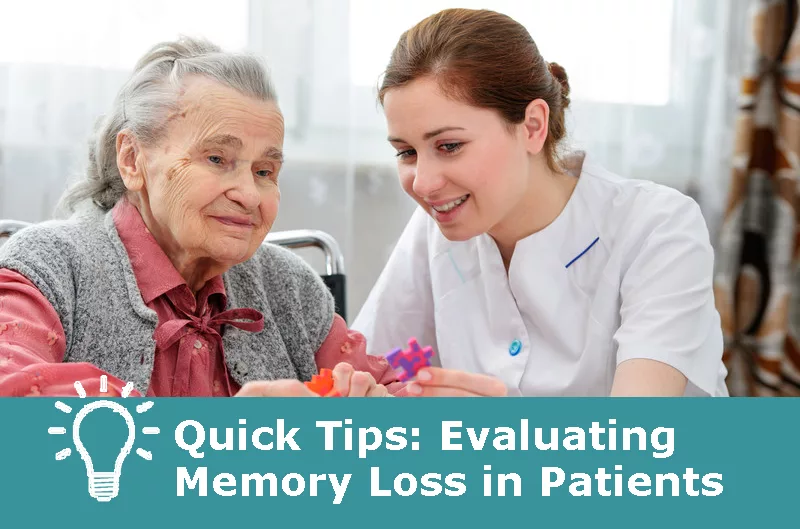The old rule of thumb used to be that “you don’t need to worry about the person who’s worried about their memory; you need to worry about people who aren’t worried.” Although that might still be true for people already with dementia, it’s important that you pick up on memory problems at the mild cognitive impairment stage. The Carlat Psychiatry Report interviewed Andrew E. Budson, MD, Chief of Cognitive & Behavioral Neurology at Veterans Affairs Boston Healthcare System, who offers the following tips on evaluating a patient concerned about memory loss.
First, evaluate whether the memory loss is interfering with important aspects of life. For example:
If you determine that memory issues might be beyond what is consistent with normal aging, take the following steps to further evaluate:
First, evaluate whether the memory loss is interfering with important aspects of life. For example:
- Did they show up at the wrong place or the wrong time to meet a friend for lunch?
- Did they forget to pick up the grandkids at soccer?
- Did they forget about a dinner they had out? Although it’s normal to forget the name of a restaurant they went to last week, people should not have completely forgotten that they ate out at an Indian restaurant the week before.
If you determine that memory issues might be beyond what is consistent with normal aging, take the following steps to further evaluate:
- Get information from caregivers and informants (this can be in the form of questionnaires to save time). For example, talk to people in the patient’s life to ask if the patient has been working harder to keep track of things. You may learn that things are just requiring much more effort than they used to.
- Do pencil-and-paper testing. Dr. Budson’s preferred test is the MoCA (Montreal Cognitive Assessment). It’s more sensitive than the Mini-Mental State Examination, it’s freely available at www.mocatest.org., and it doesn’t take long to administer—about 10 minutes for most patients. The typical Alzheimer’s patient will do especially poorly on the part of the test where the person must read and immediately repeat a list of five words. Rapid forgetting is present if, after five minutes, a person is not able to freely recall the words.
- If you suspect a problem, order a basic dementia workup to rule out reversible causes of cognitive impairment. Lab tests would typically include an MRI, CBC, electrolytes, thyroid panel, B12, and vitamin D. On the MRI, Alzheimer’s patients may show some atrophy of the hippocampus, anterior temporal lobes, and parietal lobes.
Our full interview with Dr. Budson includes advice for pharmacological treatment should a patient be diagnosed with dementia. It was published in the May 2017 issue of The Carlat Psychiatry Report. Subscribers can read it here.


_-The-Breakthrough-Antipsychotic-That-Could-Change-Everything.webp?t=1729528747)



